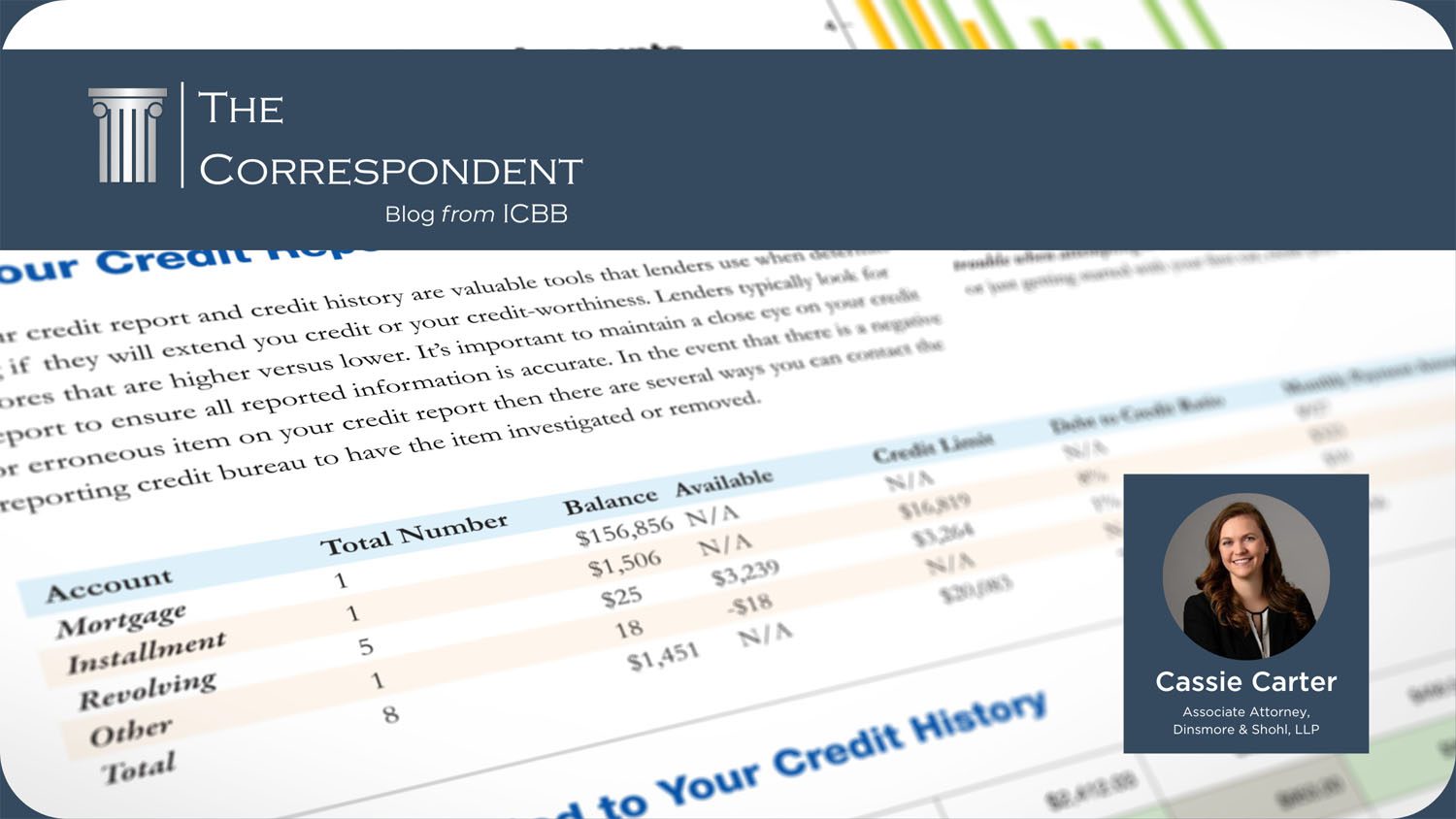Cassie Carter, Attorney at Dinsmore & Shohl, LLP
For many community banks, the legal side of banking can be overwhelming and difficult to navigate. At ICBB, we hope to be a resource for community banks in all aspects of their operations. We’ve asked our friends at Dinsmore & Shohl LLP to provide information on legal subjects within banking.
DISCLAIMER: The information contained in this article is provided for informational purposes only and should not be construed as legal advice on the subject matter.
Be honest: who out there enjoys dealing with credit reporting? When everything is going well, the system seems to take care of itself, out of sight and out of mind. It is only when a customer fails to pay, or something unusual happens with the loan, that credit reporting rears its ugly head. The customer is upset with the bank for reporting the event to the credit reporting agencies (CRAs) and the bank is left wondering why the system is reporting X, but it is generating a Y. Well, do not despair. The purpose of today’s article is to help untangle the web that is credit reporting.
A Community Bank’s Obligations
The Fair Credit Reporting Act, 15 U.S.C. §§ 1681-1681x (FCRA), generally governs credit reporting. It outlines your obligations when it comes to credit reporting and provides that a customer can file a lawsuit against you should you fail to reasonably investigate, respond and/or correct reporting (if necessary) following an investigation.
Despite preconceived notions, the FCRA does not require you to credit report. It only governs your obligations and potential exposure should you choose to credit report. So, what are your obligations as a bank? Your institution is obligated to:
- report accurately
- have policies and procedures in place to receive disputes from the CRAs
- reasonably investigate those disputes and to respond within 30 days
- have policies and procedures in place to receive and handle direct disputes from your customers regarding credit reporting.
If Your Bank Drops the Ball
What happens when you do not fulfill your obligations? It depends. Most lawsuits we handle on behalf of banks are brought by the customer alleging they submitted an indirect dispute with the CRAs, and the bank failed to either:
- respond to the dispute;
- conduct a reasonable investigation and updated its reporting within 30 days
The customer also alleges that if he/she is successful, they can recover the following against the bank:
- actual damages;
- emotional damages;
- potentially punitive damages if the customer can prove the bank acted willfully; and
- the customer’s attorney fees or costs.
Preventing a Lawsuit
What can your institution do to reduce the risk of having to deal with these types of lawsuits? Here are a few key preventive measures to take:
- have policies and procedures in place for handling disputes.
- provide periodic training for your staff on how to investigate and report a dispute
- periodically test and review your credit reporting system
- 01p|to ensure it is operating as expected.
For more on credit reporting, please feel free to reach out to Cassie Carter or Sarah Mattingly at Dinsmore & Shohl LLP.

